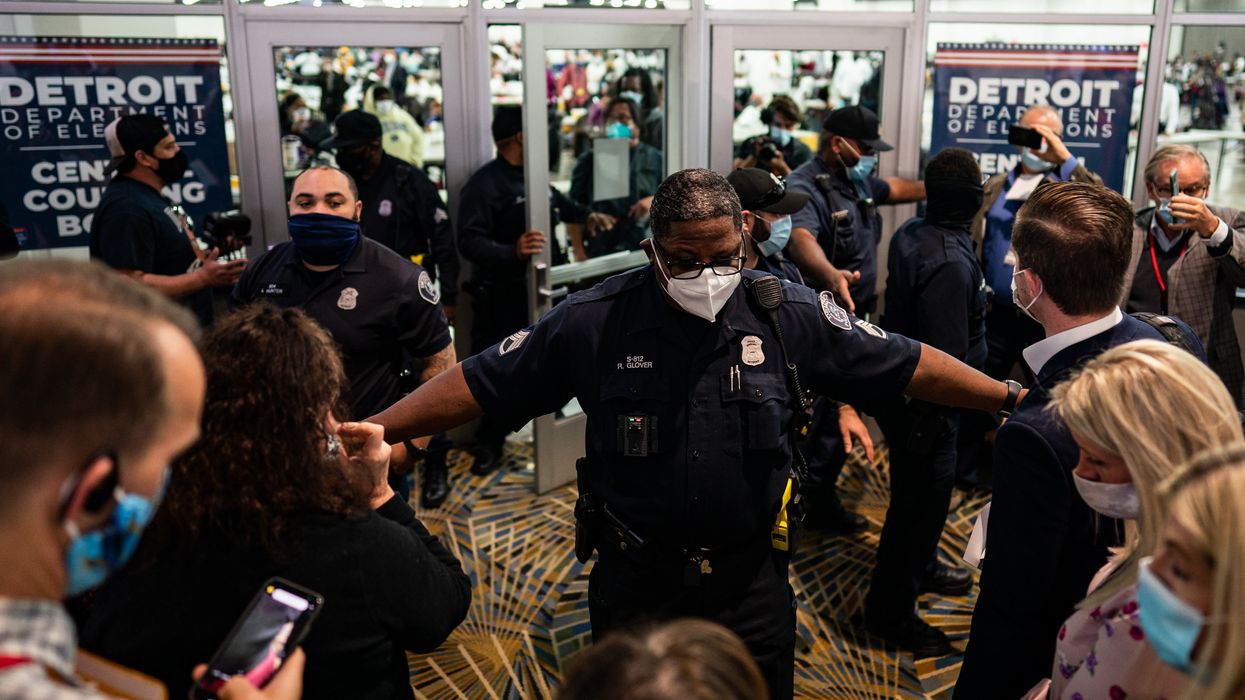Becvar is co-publisher of The Fulcrum and executive director of the Bridge Alliance Education Fund. Nevins is co-publisher of The Fulcrum and co-founder and board chairman of the Bridge Alliance Education Fund.
Close and contested elections are a part of American history, and the upcoming presidential election will likely continue this tradition.
With less than seven weeks until Election Day, The New York Times composite of polls shows Vice President Kamala Harris at 49 percent and former President Donald Trump at 46 percent, well within the margin of error. In the several key swing states, the polls are even closer, with Harris leading Trump 48 percent to 47 percent in Michigan and North Carolina, and the candidates statistically tied in Arizona, Georgia, Nevada and Pennsylvania.
Unfortunately, the worsening political polarization in America is creating deep anxiety among citizens as many fear what disputed elections could mean for our democracy. Making matters worse, Americans don’t have a very clear understanding of the rules that clarify and verify who won when the results are close.
For this reason, The Fulcrum is excited to launch “Preparing for Election Overtime,” a series of articles and commentary from bipartisan experts on what’s ahead. The series is one part of Election Overtime, a project of the Election Reformers Network and the Bridge Alliance to help Americans understand close and contested elections. The simple vision behind the program is that sports fans trust the final score, win or lose, because they know the rules; citizens need that same level of understanding of American elections.
Reflecting its bipartisan approach, Election Overtime is supported by The Carter Center and the Gerald R. Ford Presidential Foundation and funded in part by grants from The Carter Center and the Bridge Alliance (which publishes The Fulcrum). The project focuses on seven key states.
In the coming weeks The Fulcrum’s series will explore must-know topics like how courts handle fraud allegations, how key institutions have been strengthened since 2020, and how states differ in the critical post-election steps.
In parallel with the series, the Overtime Project will host national and state-level press briefings beginning with the launch event Sept. 24. These events are designed to give reporters, journalists and news anchors tools they need to report effectively on close and contested elections. Speakers for the launch event (2:30-3:30 EDT) will include:
- Jason Carter, chair, The Carter Center
- Kim Wyman, former secretary of state of Washington
- Benjamin Ginsberg, co-chair, Pillars of the Community; former legal counsel, Bush and Romney presidential campaigns
- Carmen López, election observation expert, CL Strategies
- Ari Mittleman, executive director, Keep our Republic
- Rashad Mahmood, executive director, New Mexico Local News Fund, a Press Forward Chapter
- David Nevins, founder, Bridge Alliance; co-publisher, The Fulcrum
- Kevin Johnson, executive director, Election Reformers Network
- Heather Balas, vice president, Election Reformers Network
Register now.
Election Overtime offers state-specific policy briefs on election law focusing on seven battleground states and a speaker’s bureau of trusted commentators to support election night coverage and beyond. The program will also provide journalists with a regularly updated tracker of all key post-election court challenges.
Program content will include in-depth information on the safeguards and transparency across the election phases, the recounts, audits and other procedures used to check results, and the principles that govern how courts judge election challenges.
“A lot of Americans care passionately about this election and follow the politics very closely, but they know a lot less about the rules that lead to a clear final result,” said ERN's Kevin Johnson. “Fans know some pretty complicated rules about overtime in different sports, and voters can handle the same complexity about elections.”
The days are gone when election outcomes are widely accepted even when the results are close. This November, expect many close elections will be contested and some will be adjudicated in the courts. This process will surely be accompanied by an abundance of false information propagated for the purpose of presenting a false narrative about elections being corrupt or stolen.
To counter this narrative, reporters will need a deep understanding of the rules of “election overtime” and the Election Overtime Project will serve as a valuable resource to provide print reporters, TV anchors and new bloggers with up-to-date, accurate information as to how the process of validating close elections works.
Abraham Lincoln famously said, “The ballot is stronger than the bullet.” We must do everything we can to sustain America's trust in the civic sacrament of voting.
The Election Overtime Project is designed to do just that. Join us on Sept. 24.



















 From left to right: Gabriel Cardona-Fox, Bud Branch, Joe Concienne
From left to right: Gabriel Cardona-Fox, Bud Branch, Joe Concienne 